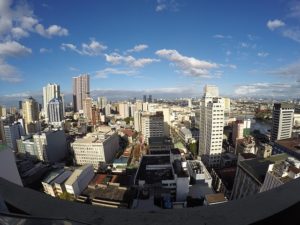Retirement becomes a more exciting prospect when you plan to retire abroad. You get a fresh new start. But like everything else in life, it needs funding. Retirement overseas is likely to be funded with retirement pension. So, you probably wonder if accessing your pension when retiring overseas is possible. What rules apply?
Yes You Can, But…
The good news is that pensions are generally accessible from abroad. But be ready for money transfer fees or charges. Most pension schemes do not send money directly to an overseas account. For instance, if you are from the UK and want to retire to another country, you naturally open a bank account in that country. Now, getting your pension from a UK bank into the bank account you opened overseas will require some transfer fees or charges.
The prevailing exchange rate may also affect the amount of money you get. But you have nothing to worry about if you are moving to a country where the cost of living is lower than in the country of your origin. In this case, accessing your pension when retiring overseas will be smooth-sailing experience. Your pension money converts to a bigger sum and you’ll find the prices of commodities there cheap. That means your money has more buying power.
So, if your pension is in UK pound or US dollar and you move to the Philippines, the exchange rate will likely double the value of your money in Philippine peso. Transfer fees and charges won’t matter. It’s a different story, of course, if you come from a developing country and move to a highly developed one. Your pension money loses value.
Is It Tax-Free?
The next concern is on taxes. Will getting your pension from abroad be tax-free? In most cases it is, depending on the policies prevailing in the country of origin. Often, pensions from the UK are tax-free. After having fully paid your private UK pension or occupational contribution, accessing your pension when retiring overseas often won’t incur taxes. It is termed as a Qualifying Recognized Overseas Pension Scheme. This should make your life overseas convenient.
But remember that tax treatment is often based on pensioners’ individual circumstances and are probably subject to change from time to time. You may also avail of certain tax benefits like reduced tax liabilities with regards to wealth transfers if you are moving to countries included in the European Economic Area or EEA. So always check with the relevant government tax agency to be sure.
UK State Pension
If you are a UK citizen, another concern about accessing your pension when retiring overseas is getting UK state pension. UK pensioners can receive this benefit just like how they get personal, company or private pensions. The real question is getting increases in pension which often depend on the UK inflation rate. Increases are often possible if:
- You lived in the UK for six months or more than a year.
- You line in the EEA.
- You live in Switzerland.
- Or, the country you live in and the UK have a social security agreement allowing pension increases.
Pensioners from Australia
The vital thing in Australia is pension age. If you’re within the legal pension eligibility age then you won’t have problems with Centrelink. It decides whether you fall under being an Australian resident or being a former resident. An inaccurate reading of your status by Centrelink may change your Australian residency status and complicate things.
So, if you’re an Australian planning to live abroad—and wondering about accessing your pension when retiring overseas—keep things simple. Make sure you are within the legal pension age to avoid hassles. Then getting your pension from abroad won’t be a problem.
US Pensioners
Can US expat pensioners get pensions while living abroad? Yes, as long as they are eligible for it. And eligibility means minimum total contributions equivalent to 40 quarters or 10 years and age from 62 to 70. Even US citizens who spent part of their career working abroad may also get US social security benefits as well as pensions from the foreign government where they worked overseas.
But pensions affected by work done overseas are often based on bilateral social security agreements. Thus, it’s best to check with appropriate government pension agencies of both countries to ascertain what pensions can be had.
American expats may also discover in some cases that their benefits have been reduced. This is often due to contributions deducted for foreign pension systems through the so-called Windfall Elimination Provision or WEP. This affects US pensioners if they have pension from an overseas job where no US social security taxes were deducted from their pays. And then they had another job where they qualified for social security benefits in the US.
There will be complications on the benefits but you will be accessing your pension when retiring overseas.
It is best to consult with proper retirement fund offices and settle the matter about accessing your pension when retiring overseas before you actually move to another country and settle down.
Sources:
https://www.pensionwise.gov.uk/en/living-abroad
https://www.portafina.co.uk/blog/looking-to-retire-abroad-what-happens-to-your-pension
https://thunfinancial.com/social-security-american-expats-retirement-abroad/




